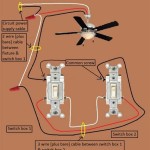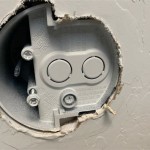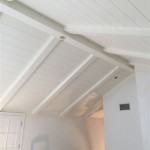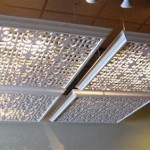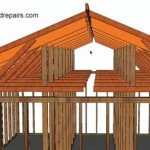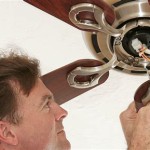Drop Ceiling vs Suspended Beam: A Comprehensive Guide
When planning a commercial or residential construction project, selecting the right ceiling system is crucial. Two popular options stand out: drop ceilings and suspended beam ceilings. Each system offers unique advantages and disadvantages, catering to different needs and aesthetic preferences. Understanding the key differences between drop ceilings and suspended beam ceilings can assist in choosing the optimal solution for your specific project.
Drop Ceilings: Versatility and Accessibility
A drop ceiling, also known as a suspended ceiling, consists of individual ceiling tiles suspended from a grid system. The grid is typically made of metal, commonly aluminum or steel, and is hung from the main structural ceiling. This creates a space between the structural ceiling and the finished ceiling, which is readily accessible for maintenance and repairs.
Drop ceilings are renowned for their versatility and affordability. They offer a wide range of tile materials, including acoustic tiles, mineral fiber tiles, and even wood or metal panels, allowing for customization and aesthetic flexibility. The modularity of drop ceilings simplifies installation, making it relatively quick and cost-effective to install.
The ease of access to the space above the drop ceiling makes it ideal for hiding wiring, plumbing, and HVAC systems, minimizing visual clutter. Drop ceiling systems are often preferred for their versatility in accommodating lighting fixtures, sprinklers, and other ceiling-mounted components.
Suspended Beam Ceilings: Modern Aesthetics and Structural Integrity
Suspended beam ceilings, in contrast to drop ceilings, feature a grid system with exposed structural beams. These beams, typically made of wood or metal, are suspended from the main ceiling and create a more contemporary and industrial look. The open grid design allows for the integration of various lighting fixtures, creating unique visual effects.
Suspended beam ceilings are favored for their architectural appeal and ability to create distinctive spaces. They allow for the installation of larger, more decorative lighting fixtures, enhancing the overall aesthetic. The structural integrity of the beams provides a solid foundation for heavy fixtures and equipment.
The open design of suspended beam ceilings can also contribute to improved acoustics, as sound waves can travel more freely within the space. While not as easily accessible as drop ceilings, the structural integrity and design versatility make suspended beam ceilings a compelling option for contemporary and modern architectural designs.
Key Considerations: Aesthetics, Functionality, and Cost
When deciding between drop ceilings and suspended beam ceilings, several factors should be considered:
Aesthetics:
Drop ceilings offer versatility in materials and design, allowing for a wide range of aesthetic choices, from classic to contemporary. Suspended beam ceilings provide a more modern and industrial look, with the exposed beams becoming a prominent design feature. The aesthetic preference will heavily influence the choice of ceiling system.
Functionality:
Drop ceilings offer easy access for maintenance and repairs due to their readily removable tiles. Suspended beam ceilings, while not as easily accessible, provide superior structural support and a more open design, potentially impacting the functionality of the space.
Cost:
Generally, drop ceilings are more affordable to install due to their modularity and ease of assembly. Suspended beam ceilings, with their more complex designs, may incur higher installation costs. Considering the overall budget and project requirements is crucial when comparing costs.
Beyond these key considerations, factors such as existing ceiling height, fire code requirements, and the specific needs of the space will influence the final decision. It is recommended to consult with a professional architect or construction engineer to determine the most suitable ceiling system for your project.

This Vs That Exposed Ceiling Or Acoustical Dbs Group Llc

Drop Ceiling Or Drywall Which One Should You Choose

Ceilings 101 Drop Ceiling Vs Drywall Elegant Walls

Diffe Types Of Ceilings Armstrong Residential

Drop Ceiling Installation Ceilings Armstrong Residential

Drop Ceiling Vs Bare
How To Install Drop Ceilings Easy Guide Kanopi By Armstrong

Pros And Cons Of Having A Drop Ceiling With Commercial Tiles In The Office Decorative Inc

Components Of A Suspended Acoustic Lay In Ceiling Tiles Acoustical Drop

Faux Wood Ceiling Beams Dropped Alternative Decorative Tiles Inc
Related Posts

